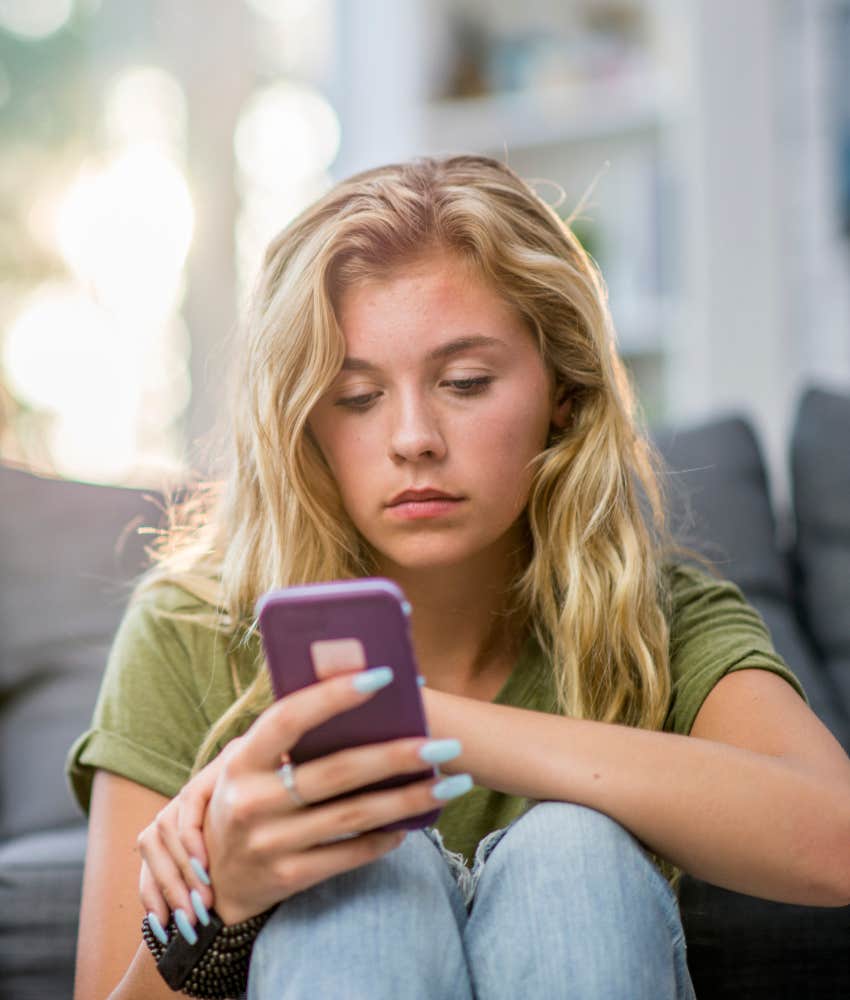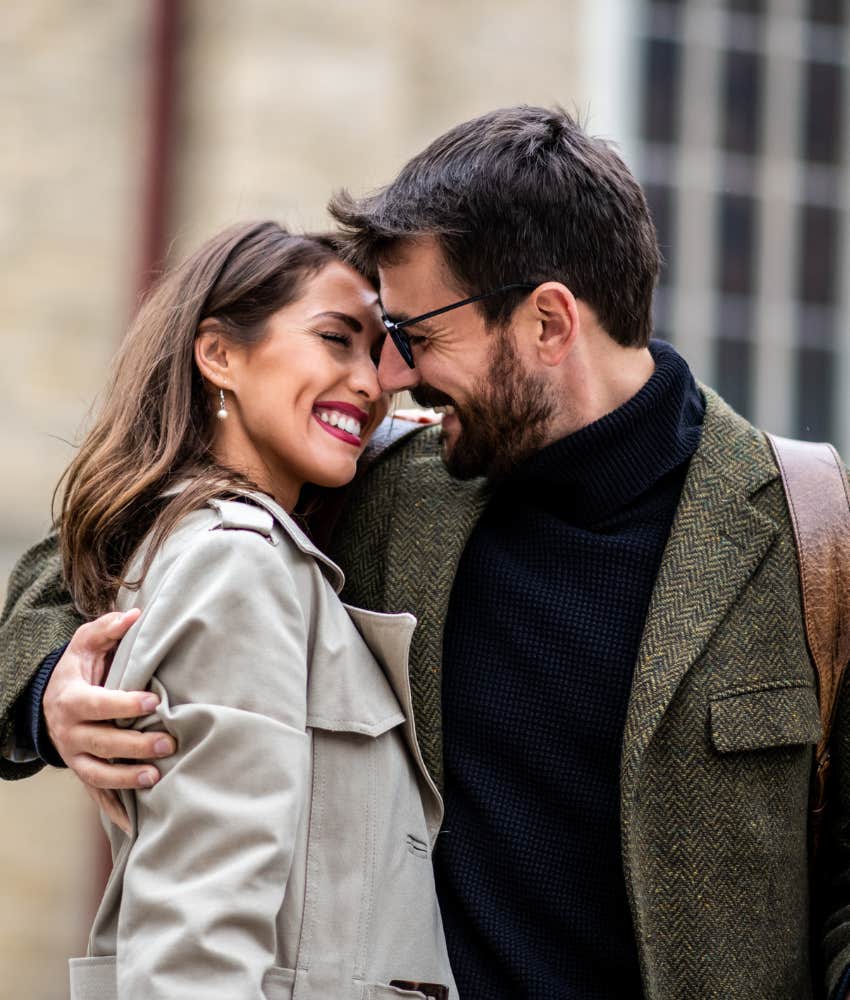People Who Stop Posting Their Life Online As They Get Older Usually Have These 11 Reasons
The older you get, you realize true peace and happiness comes the less you share your life online.
 Sule Makaroglu | Unsplash
Sule Makaroglu | Unsplash There’s a quiet kind of maturity that hits you when you start pulling back from social media and stop posting your whole life online anymore as you get older. It’s not about disappearing completely, it’s about not needing to document everything just to feel seen. And if you’ve ever gone through a phase of posting your dinner, outfits, night out, and even the details of your relationship for everyone to digest, at some point you probably start to wonder who you're really doing it for. People who stop posting as much as they get older aren’t anti-social, they’re often just evolving.
The older you get, the more you realize how much peace comes from keeping certain things to yourself. You’re not hiding, privacy just feels more like power over your own life. If you’ve noticed yourself or someone else slowly stop oversharing online, chances are it’s intentional. And most of the time, the reasons run deep.
1. They realize attention isn’t the same thing as real connection.
When you’re younger, it’s easy to confuse likes, comments, and engagement with genuine interest or care. But as you grow, you start craving intimacy and not just interaction. Posting your life online starts to feel hollow when you realize that the dopamine hit doesn’t translate to real closeness. Most of the people double-tapping aren’t actually showing up for you in real life.
"We're wired to connect. It's kept us alive for millions of years in a world of scarcity and ever-present danger," explained Stanford psychiatrist Anna Lembke, M.D. author of Dopamine Nation: Finding Balance in the Age of Indulgence. "Moving in tribes safeguards against predators, optimizes scarce resources and facilitates pair bonding. Our brains release dopamine when we make human connections, which incentivizes us to do it again. But social connection has become druggified by social-media apps, making us vulnerable to compulsive overconsumption." People start to figure this out as they get older.
So instead of sharing every high and low, they start saving those stories for the people who actually ask how you are and mean it. They still want to be known, but not by everyone. Just by the right ones. Eventually, they realize that connection isn’t public. It’s the friend who checks on you at midnight, not the 300 people who replied to your Instagram story.
2. They’ve been burned by people using their posts against them.
 Photo: FutCamera from Getty Images Signature | Canva Pro
Photo: FutCamera from Getty Images Signature | Canva Pro
One of the fastest ways to lose your desire to post your whole life online is to experience someone weaponizing what you shared. Maybe it was a vague subtweet. Maybe it was someone keeping tabs just to gossip later. Either way, it leaves a mark.
So people start holding things closer. Not because they’re afraid, but because they’re no longer naive. They know not every viewer is supportive, some are just spectators waiting for a downfall.
It’s not paranoia. It’s wisdom. They learned that not everyone deserves a front-row seat to your life, especially if they’re just watching to critique the show.
3. They’ve experienced real grief that changed their relationship to visibility.
When you go through something devastating — a loss, betrayal, or life-altering event — it changes how you engage with the world. Suddenly, it feels strange to perform joy when you’re still quietly grieving. Or to open up when you're still trying to understand what happened yourself.
So they pull back. Not to be dramatic, but because they’re processing. And the timeline of healing doesn’t match the pace of posting. Social media starts to feel like a place where people expect quick answers and aesthetic closure, and that’s not where they are.
They’re not gone. They’re just in a season of needing depth over display.
4. They’ve learned to value presence over performance.
There’s a point where you catch yourself curating your life more than living it. You go out to dinner and the first thing you think is that should get a cute pic. Eventually, that habit starts to feel exhausting. Fake. Out of sync with your real priorities.
So people stop trying to make moments look perfect and start choosing to be in them instead. The most meaningful nights don’t have a photo dump. They just have memories you had to be there for.
They don’t hate social media. They just no longer need it to validate an experience they already know was enough.
5. They’ve become more protective of their relationships.
 Photo: Sanja Radin from Getty Images | Canva Pro
Photo: Sanja Radin from Getty Images | Canva Pro
People who’ve had a relationship implode under public scrutiny usually never go back to sharing like that again. Not because they’re ashamed, but because they’ve felt how heavy it gets when strangers think they’re entitled to an opinion about your love life.
As they get older, they realize that what’s sacred doesn’t need to be flaunted. Love isn’t more real just because it’s posted. Sometimes it’s more real because it isn’t.
Keeping a relationship offline doesn’t mean they’re hiding it. It means they’re nurturing it, without letting a thousand random eyes dilute what’s personal.
6. They’ve redefined success and no longer feel the need to prove anything.
There’s a moment where you realize the version of success they were performing online — the trips, the outfits, the hustle — wasn’t actually fulfilling. Maybe they still have all those things, or maybe they don’t. Either way, they’re no longer chasing aesthetics for approval.
People who’ve found inner peace stop needing to show their growth all the time. They know who they are. They know what they’ve built. They no longer need applause to feel proud.
Success becomes quieter when it’s real. Because the people who are truly secure don’t need to advertise every achievement.
7. They developed stronger boundaries with their time and energy.
Posting constantly takes emotional energy and can hurt your mental health, even when it’s just for fun. Thinking about how people will react, wondering if you’re oversharing, checking comments all adds up. People who are deep in their healing era start noticing how draining that cycle actually is.
So they reclaim that energy. They log off. They use that time for things that fill them up instead of depleting them. They enjoy long walks, deep talks, journaling, and rest as they get older. Things no algorithm ever rewards, but real life does.
They’re not disappearing. They’re just protecting their peace.
8. They’ve grown out of needing external validation from social media.
There’s a point where compliments stop hitting the same. Because no amount of internet approval makes up for internal emptiness. And people who’ve done the inner work stop craving that kind of feedback loop.
It’s not that they think posting is bad. It’s just that they no longer need it to feel worthy, loved, or seen. Their self-esteem is no longer outsourced to strangers.
Once someone has learned to validate themselves, they don’t unlearn it. They just outgrow needing likes to feel okay.
9. They’re building a life that feels good more than it looks good.
 Photo: Rido | Canva Pro
Photo: Rido | Canva Pro
The best lives don’t always photograph well. And the older you get, the more you start choosing messy joy over curated content. Your apartment may not be Pinterest-perfect, but it’s cozy and safe. Your weekend plans might be chill, but they’re healing. Your partner might not be Instagram-model-hot, but the love is real.
People stop posting because they’re living. And that life doesn’t always translate to a 15-second video. And that’s the point.
They start prioritizing how life feels over how it performs on a feed.
10. They realized not everything sacred has to be shared.
Some moments are just meant for you. A quiet morning with coffee. A spontaneous laugh with someone you love. A moment of peace after a long fight with your inner critic. These things aren’t secret, they’re sacred. And people who’ve matured emotionally stop mistaking exposure for honesty.
They realize that oversharing doesn’t always equal vulnerability. Sometimes real growth is silent. Private. Gentle.
Not because it’s hidden, but because it’s holy.
11. They’ve simply changed. And they don’t feel the need to explain it.
At the end of the day, some people stop posting just because they’re different now. They don’t have the same desires, needs, or instincts they used to. They’re not trying to make a statement. They’re just living their life with no announcement, no algorithm, no aesthetic.
They trust that the people who matter will still know what’s going on. That the story of their life doesn’t need a highlight reel. And that their presence in the world is still meaningful, even if it’s no longer online.
Sometimes the biggest flex is knowing who you are, even when nobody’s watching.
Micki Spollen is YourTango’s Deputy Editor. Micki has her Bachelor’s Degree in Journalism & Media Studies from Rutgers University and over 10 years of experience as a writer and editor covering astrology, spirituality, and human interest topics.

